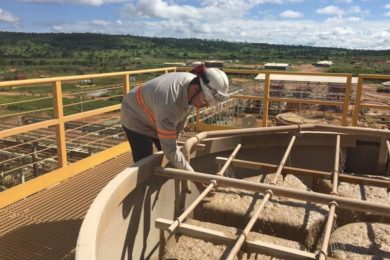ArrMaz, a global leader in specialty chemicals for the mining, fertilizer, phosphate, industrial ammonium nitrate, asphalt, and oil and gas industries worldwide, is eying Brazil. To meet the needs of a 200-million South American economy, the company is engineering solutions to maximize Brazil phosphate grade and recovery for selective phosphate flotation. At the same time, it will be depressing iron and other contaminates.
To meet the increasing demand, Brazilian miners will have to focus on processing lower quality ore while maxing out phosphate resources from higher quality mines. Unfortunately, the lower quality deposits contain more unwanted levels of impurities such as barite, dolomite, and silica than current mineral flotation processes can deal with. Removing these impurities is not easy but necessary to achieve phosphate grade that can be eventually converted into phosphate quality fertilizer while still being able to float phosphate and substantially depress iron.
While Brazil’s current, state-of-the-art reverse flotation processes already float barite away from phosphate, the lower grade deposits will need more sophisticated collectors that can handle widely varying ore and processing conditions. Therefore, Brazilian phosphate rock producers will have a difficult time to make grade, as too much dolomite will complicate the conversion into phosphate quality fertilizer.
ArrMazz is working with the Brazilian producers to customize a collector system and flowsheet design aimed at their ore and process. The objective is to simplify the process by combining flotation steps in a way that the undesirable impurities can be floated away all at once, thus maximizing phosphate grade and recovery. The lower the amount of impurities, the higher the quality of the fertilizer processing and value.




